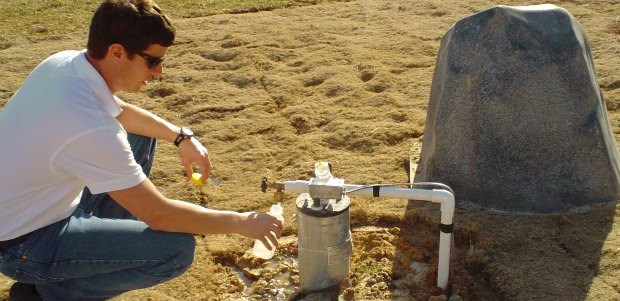
EPA Offers Tips for Homeowners with Flooded Wells
Cathy Magliocchetti of EPA's Region III offered tips on the agency's blog recently for people whose private wells and septic systems may have been flooded as a result of Hurricane Irma's impact on the East Coast.
Cathy Magliocchetti of EPA's Region III offered tips on the agency's blog recently for people whose private wells and septic systems may have been flooded as a result of Hurricane Irma's impact on the East Coast. Magliocchetti works on wellhead and source protection of drinking water, is a certified Penn State Master Well Owner, and is a member of her local environmental advisory council, according to her post, which says EPA's Mid-Atlantic Region is home to millions of residents who rely on private wells for their drinking water.
If a well has been flooded (that is, if flood waters have surrounded and/or submerged your well head), take these steps, she wrote:
1. Do not drink or wash with the water until the well has been serviced, disinfected, and confirmed safe.
2. Avoid electrical shock – stay away from the well pump and turn off the well pump circuit breaker.
3. Contact your local health department or other local officials for recommendations on how to test and confirm that flood hazards have been resolved. Local government offices can assist homeowners in finding certified laboratory resources, especially for bacterial testing, which should be anticipated following flood events, and they may be able to advise whether other parameters should be investigated following a flood event.
4. Seek a qualified well contractor or pump installer to assist with these:
- Cleaning, drying, and re-establishing electrical service to the pump.
- Disinfecting and flushing the well to remove any contamination that entered during the flood.
- Performing any other necessary maintenance so that your well pump can return to service.
"As a private well owner, you likely also have an on-lot septic system, which may also have been impacted by flood waters. Keep in mind that flood events will impact your septic drainfield and could also potentially damage pumps or other parts of your septic system," she wrote. "Faulty septic systems and drainfields can negatively impact your well water quality down the road, so have your septic system evaluated by a professional following a flood, to ensure normal operation has returned."
She recommended watching this video on well flooding from the National Ground Water Association, as well.